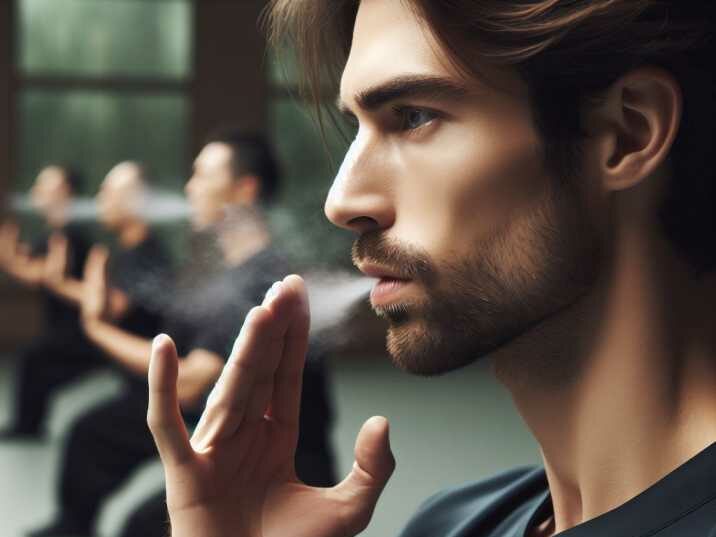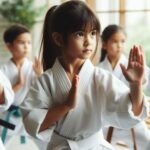Discover the Art of Mindfulness with Tai Chi
Mindfulness with Tai Chi
Table of Contents
Introduction:
Tai Chi, the most mindful martial art, offers a sanctuary of serenity in our fast-paced world.. Amidst the array of martial arts, one stands out for its emphasis on Mindfulness with Tai Chi and inner balance — Tai Chi. In this exploration, we delve into the serene realm of Mindfulness with Tai Chi, unraveling seven insights that make it the most mindful martial art.
7 Insights Mindfulness with Tai Chi
At its core, Tai Chi is an ancient Chinese martial art that has evolved into a graceful, slow-paced form of exercise. Often referred to as “meditation in motion,” Mindfulness with Tai Chi seamlessly blends physical and mental elements, promoting a harmonious flow of energy.
1. Mindful Movement:
Unlike more aggressive martial arts, the deliberate, slow, and fluid movements of Tai Chi make it a unique and mindful practice. Practitioners focus on every nuance of each movement, fostering a profound mind-body connection. This deliberate pace allows individuals to stay present, fully immersed in the experience.

2. Breath Control:
Central to Tai Chi is the emphasis on controlled breathing. By synchronizing breath with movement, practitioners cultivate a heightened awareness of their breath, fostering a sense of calm and focus. This breath-centric approach not only enhances physical performance but also serves as a gateway to mindfulness.
3. Meditation in Motion:
Tai Chi incorporates elements of meditation, encouraging practitioners to clear their minds and be fully present. The slow, deliberate movements provide a moving meditation, helping individuals attain a tranquil state of mind amidst the demands of daily life.
4. Body Awareness:
Tai Chi promotes a deep connection with the body. Practitioners learn to tune into their bodies, recognizing tension and releasing it. This heightened body awareness extends beyond the practice, positively impacting everyday movements and posture.
5. Stress Reduction:
In the pursuit of mindfulness, Tai Chi acts as a potent stress-reduction tool. The gentle, flowing movements, combined with breath control, have been shown to lower cortisol levels and induce a relaxation response, making it an effective antidote to the stresses of modern life.

6. Cultivation of Chi:
Central to Tai Chi philosophy is the concept of “chi” or life energy. Practitioners learn to cultivate and circulate this energy throughout the body, fostering balance and harmony. This energetic awareness adds a spiritual dimension to the practice, deepening the connection between mind, body, and spirit.
7. Universal Accessibility:
Tai Chi’s gentle nature makes it accessible to people of all ages and fitness levels. Unlike some martial arts that demand physical prowess, Tai Chi welcomes beginners and seasoned practitioners alike, making it a truly inclusive practice.
| Aspect | Description |
|---|---|
| Mindful Movement | Deliberate, slow, and fluid movements cultivate a profound mind-body connection. |
| Breath Control | Emphasis on controlled breathing enhances both physical performance and mindfulness. |
| Meditation in Motion | Integrates elements of meditation, providing a moving meditation experience. |
| Body Awareness | Promotes deep connection with the body, fostering heightened awareness and posture. |
| Stress Reduction | Gentle, flowing movements and breath control effectively lower stress and cortisol levels. |
| Cultivation of Chi | Focuses on cultivating and circulating life energy for balance and harmony. |
| Universal Accessibility | Suitable for individuals of all ages and fitness levels, fostering inclusivity. |
Conclusion:
In the quest for Mindfulness with Tai Chi emerges as a beacon of tranquility. Its unique blend of slow, deliberate movements, breath control, and meditation creates a holistic experience that resonates with people seeking balance in their lives. By delving into the essence of Mindfulness with Tai Chi, we not only discover a martial art but a pathway to mindfulness, inviting us to savor each moment with grace and presence.

FAQs:
- Q: What makes Tai Chi a mindful martial art? A: Tai Chi’s deliberate movements, breath control, and meditative elements foster a profound mind-body connection, making it a mindful practice.
- Q: Can anyone practice Tai Chi, regardless of age or fitness level? A: Absolutely. Tai Chi’s gentle nature makes it accessible to individuals of all ages and fitness levels, promoting inclusivity.
- Q: How does Tai Chi reduce stress? A: The slow, flowing movements combined with breath control in Tai Chi have been shown to lower cortisol levels, providing an effective stress reduction method.
- Q: Is Tai Chi a form of meditation? A: Yes, Tai Chi incorporates elements of meditation, offering practitioners a moving meditation experience that enhances mindfulness.
- Q: What role does breath control play in Tai Chi? A: Breath control is central to Tai Chi, synchronizing breath with movement to enhance both physical performance and mindfulness.
- Q: Can Tai Chi help improve body awareness? A: Yes, Tai Chi promotes a deep connection with the body, helping individuals tune into their bodies, recognize tension, and improve posture.
- Q: How does Tai Chi cultivate “chi” or life energy? A: Tai Chi philosophy involves practices to cultivate and circulate life energy (chi) throughout the body, fostering balance and harmony.
- Q: How long does it take to learn Tai Chi proficiently? A: The time it takes to become proficient in Tai Chi varies, as it depends on factors like frequency of practice, individual dedication, and prior experience. Consistent practice over several months is typically required to see significant progress.
- Q: Can Tai Chi be practiced as a form of self-defense? A: While Tai Chi is primarily known for its mindfulness and health benefits, it does contain self-defense applications within its movements. Some practitioners choose to delve deeper into these aspects, but the emphasis is on the overall well-being of the individual.
- Q: Is Tai Chi suitable for people with physical limitations or injuries? A: Yes, Tai Chi is often recommended for individuals with physical limitations or injuries. The gentle and low-impact nature of the practice makes it adaptable, and many find it beneficial for rehabilitation and improving flexibility.
- Q: Can Tai Chi be practiced outdoors, or is it strictly an indoor activity? A: Tai Chi can be practiced both indoors and outdoors. Many practitioners enjoy the added benefit of connecting with nature while practicing outdoors, enhancing the overall experience of mindfulness.
- Q: Is Tai Chi a solo practice, or can it be done in groups? A: Tai Chi can be practiced both solo and in groups. Many practitioners find group sessions to be motivating and enjoy the communal aspect of practicing together. However, solo practice allows for a more personal and focused experience.
- Q: Does Tai Chi require special equipment or a specific location? A: Tai Chi generally requires no special equipment. Loose, comfortable clothing and a flat surface are sufficient. It can be practiced in various locations, making it a versatile and accessible martial art.
- Q: Can Tai Chi be integrated into other exercise routines? A: Yes, Tai Chi can complement other exercise routines. Its focus on flexibility, balance, and mindfulness can enhance the benefits of other forms of exercise, promoting overall well-being.
- Q: Is there a specific age range for starting Tai Chi? A: Tai Chi is suitable for people of all ages. It is often recommended for seniors due to its gentle nature, but individuals of any age can start and benefit from the practice.
- Q: How does Tai Chi impact mental health? A: Tai Chi has been associated with improved mental health by promoting relaxation, reducing stress, and enhancing mindfulness. The meditative aspects of the practice contribute to a sense of calm and emotional well-being.
- Q: Are there different styles of Tai Chi, and do they vary in mindfulness? A: Yes, there are various styles of Tai Chi, such as Yang, Chen, and Wu. While the core principles of mindfulness remain, each style may have unique characteristics. Choosing a style often depends on personal preference and individual goals.
- Q: Can Tai Chi be practiced during pregnancy? A: In many cases, Tai Chi is considered safe during pregnancy. However, it’s essential to consult with a healthcare professional and an experienced Tai Chi instructor to ensure that the practice is adapted to the specific needs and conditions of pregnancy.



